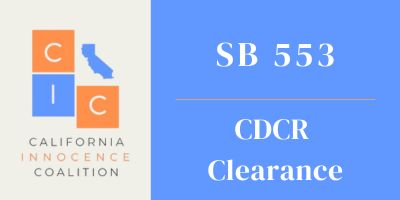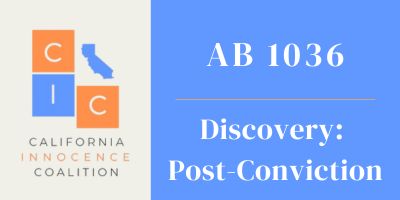The California Innocence Coalition – the Northern California Innocence Project, The Innocence Center, Loyola Project for the Innocent, and the Los Angeles Innocence Project – work on policy reform to help reduce the risks of a wrongful conviction, intervene when a wrongful conviction has occurred, and to assist our freed clients in transitioning home upon their release from prison.
Existing law requires the California Department of Corrections and Rehabilitation (CDCR) to conduct rehabilitative programming in a manner that minimizes program wait times and offers a variety of program opportunities to incarcerated people. Existing law also establishes a procedure for rehabilitation program providers to receive prison clearances and an identification card to gain entry into the state prison and requires the CDCR to provide state prisons with forms for program providers to obtain the clearances. This bill would require CDCR to create similar standardized clearance forms for legal professionals to apply for annual clearance to gain approval to provide legal services at all institutions.
Existing law requires the court, in a case involving a conviction of a serious or violent felony resulting in a sentence of 15 years or more, to order that the defendant be provided reasonable access to discovery materials upon the prosecution of a postconviction writ of habeas corpus or a motion to vacate judgment and a showing that good faith efforts to obtain discovery materials from trial counsel were made and were unsuccessful. This bill would authorize reasonable access to discovery materials for felonies resulting in a sentence of one year of incarceration or more, and would no longer require a showing that efforts to obtain discovery from trial counsel were unsuccessful. The bill would broaden the definition of “discovery materials” to include, among other things, materials from any prosecutor who tried or worked on the case that tend to negate guilt, or mitigate the sentence or offense. The bill would additionally require trial counsel, for all criminal convictions on or after July 1, 2026 that result in a sentence of one year of incarceration or more, to retain digital color copies of every item in the file.


